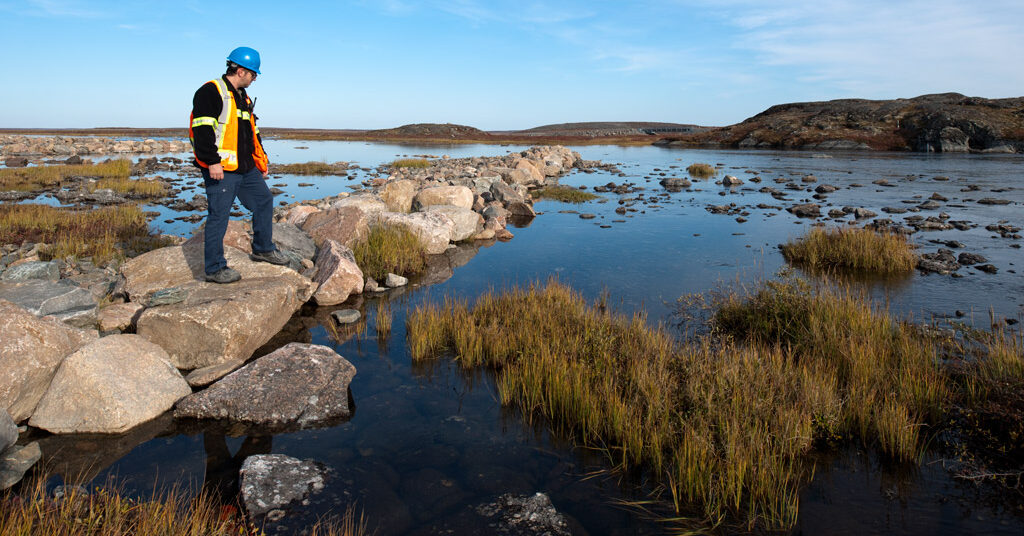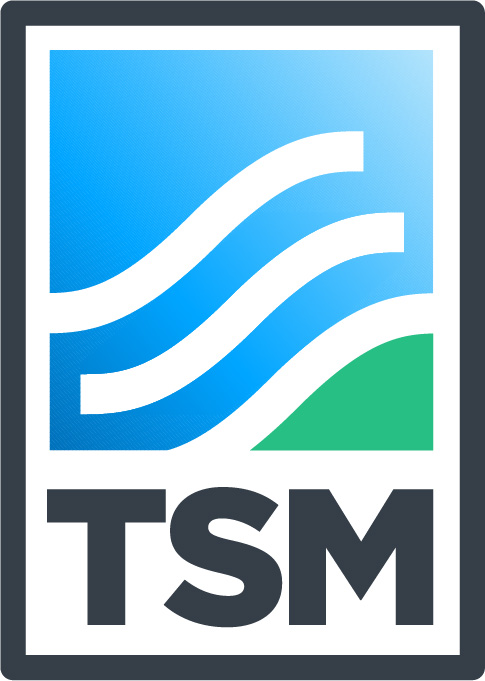Glencore’s Kidd Operations and Raglan Mine get top nods for innovative environmental and community engagement projects
For their innovative projects that raise the bar for corporate responsibility in the Canadian mining sector, Glencore’s Kidd Operations and Raglan Mine were recognized with 2016 Towards Sustainable Mining (TSM) Excellence Awards yesterday at the CIM Awards Gala in Vancouver.
The Mining Association of Canada (MAC) awarded Glencore’s Raglan Mine with the 2016 TSM Environmental Excellence Award for its successful use of renewable energy with its wind turbine and accompanying storage facility in northern Quebec, the largest in the province. Glencore’s Kidd Operations was recognized with the 2016 TSM Community Engagement Excellence Award for helping local non-profits secure long-term sustainability through its Community Partnerships program in Timmins, Ontario.
“We congratulate Glencore’s Raglan Mine and Kidd Operations for sweeping this year’s TSM Excellence Awards. The awards recognize the company’s leadership in taking emerging environmental technologies and social practices and successfully implementing them at the site-level, paving the way for the wider industry,” said Pierre Gratton, President and CEO, MAC. “These projects showcase the significant investments in innovation our members are making to protect the environment and to create lasting benefits for the communities where they operate.”
TSM Environmental Excellence Award 2016 Winner: Glencore’s Raglan Mine
Sitting on a plateau 600 metres high on the Ungava Peninsula in northern Quebec, Glencore’s Raglan Mine is well situated to take advantage of the power of wind. In 2014, the company did exactly that when it completed its construction of a 120-metre high wind turbine and storage facility, the largest in Quebec. Like most other northern mines, the off-grid Raglan Mine was heavily dependent on diesel to fuel its operations. With climate change considerations, commitments to limit environmental impacts and rising diesel costs, there was a strong business case for Glencore to explore renewable energy solutions. With the mine situated in the Canadian Arctic, which harbours some of the world’s richest wind resource, Glencore set out to diversify its energy mix with wind as a means of improving sustainability, reducing emissions and cutting costs. The project was unprecedented in scale, and was specially designed for severe Arctic climate conditions. The project was a private-public partnership between Raglan Mine, TUGLIQ Energy and the federal and provincial governments. Communities were consulted throughout the project and feedback was acted upon by the company. For example, concerns raised by the Inuit about the potential of blade reflection affecting local fish patterns resulted in Glencore’s decision to move the turbine to another location.
In its inaugural year, the 3-megawatt wind turbine and storage facility has already saved 2.1 million litres of diesel and reduced greenhouse gas emissions by 5.85 kilotons. Based on these results, Glencore estimates that it will save more than $40 million in fuel-related costs over the projected 20-year life of the wind turbine. This successful pilot project could have transformative impacts across northern Canada, helping to pave the way for the more widespread adoption of greener energy alternatives. It is a fully-developed and tested wind power and storage system that could be duplicated into Aboriginal communities and other northern mining operations in the future.
“Raglan Mine is proud to implement a project that promotes renewable energies in Québec’s Arctic region despite the significant technical and logistical challenges involved. Since our facilities are not connected to the hydro network, we have to produce our own electricity. This project allows us to reduce our fossil fuels consumption and, in turn, reduce our greenhouse gas emissions, thus enabling us to minimize our environmental footprint”, said Kristan Straub, Raglan Mine’s Vice President.
TSM Community Engagement Excellence 2016 Winner: Glencore’s Kidd Operations
Glencore’s Kidd Operations, including the Kidd Concentrator and the Kidd Mine, is Timmins’ largest private-sector employer. Kidd Operations is a major corporate funder in Timmins, and has donated nearly $4 million towards community initiatives since 2007. With an anticipated closure date of 2022, it has re-invented its corporate giving approach to mitigate impacts of its eventual exit and to ensure that it is contributing to long-term capacity building and sustainability in the community.
Based on stakeholder feedback and identified local priorities, Kidd developed an innovative social investment program called “Community Partnerships”, transforming how the site invests in the community. The new model has Kidd taking a proactive approach to social investment by brokering strategic projects to community partners, moving away from traditional corporate philanthropy. This has enabled Kidd to engage meaningfully with stakeholders to design collaborative, multi-partner projects that contribute to the long-term sustainability of the community at large. An example of this was the offering of Timmins’ first sustainability conference for the local non-profit sector in 2013. What is also innovative about that model is that it measures social return on investment for the major projects supported allowing Kidd to evaluate the reach of its social investments based on financial and social impact data. For example, Kidd was able to determine its $320,000 investment in a recent expansion project at a local retirement home showed a return of $1.58 for each dollar that Kidd invested into the project.
The success of the Community Partnerships program and its ability to measure social return on investment attracted the attention of Canada’s largest public-sector grantmaker, the Ontario Trillium Foundation (OTF). In 2015, Kidd and the OTF launched the $1 Million Kidd Operations–Ontario Trillium Foundation Legacy Fund. This partnership will see Kidd Operations and the OTF each investing $500,000 into the Fund, which will begin making grants when Kidd ceases operations. This collaboration, a first for the government agency, paves the way for future private-public sector partnerships.
“Kidd Operations has done lots of work to extend the life-of-mine and we continue to challenge ourselves to go on even further. However, we must also start thinking and planning for ultimate closure and what that will mean for our community. Our Community Partnerships program celebrates our venerable 50-year history of community contributions, but it also looks to the future,” said Steve Badenhorst, Glencore-Kidd Operations’ General Manager. “Social investments made through Kidd’s Community Partnerships Program, including the $1M Kidd Operations – Ontario Trillium Foundation Legacy Fund, are aimed at helping community organizations achieve greater self-sustainability beyond closure.”
A total of 23 nominations were submitted by mining companies that participate in the TSM initiative, a performance-based program whereby mining operations evaluate, manage and publicly report on critical environmental and social responsibilities. The selection committee, comprised of members from the Mining Association of Canada’s (MAC) national Community of Interest (COI) Advisory Panel, selected the finalists based on criteria such as innovation, involvement of and engagement with communities, and project outcomes. TSM performance was also considered as an indicator of the company’s ongoing commitment to corporate responsibility.
-30-
About MAC
The Mining Association of Canada is the national organization for the Canadian mining industry. Its members account for most of Canada’s production of base and precious metals, uranium, diamonds, metallurgical coal, mined oil sands and industrial minerals and are actively engaged in mineral exploration, mining, smelting, refining and semi-fabrication. Please visit www.mining.ca.


